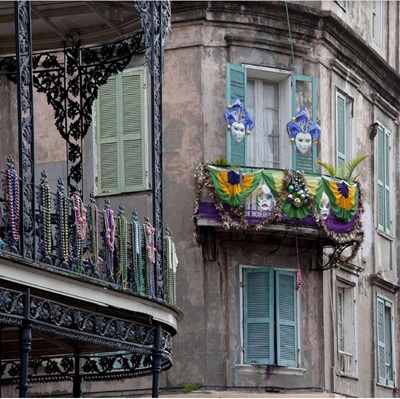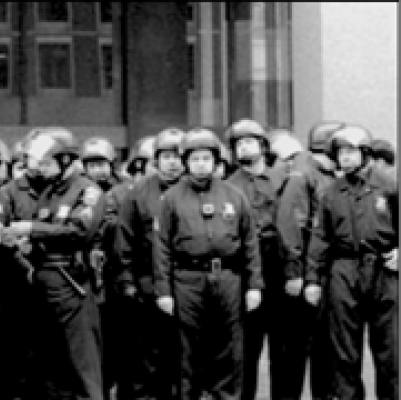.
.
“Brown Bear,” a short story by Bailey Bridgewater, was a finalist in our recently concluded 51st Short Fiction Contest. It was published in April, 2019 by Terse literary magazine, and is published here with the permission of the author.
.
.
.
.
Brown Bear
by
Bailey Bridgewater
.
_____
.
…..The shimmering bulb of the brown Long Island sunset was barely enough to illuminate the silently flailing figure in the water. The flaming ball stared down at the commotion from beneath its skin of smog, but the girl simply picked the loose sand up in her hands, running the granules through her stubby fingers, fascinated by the way it felt on her palms, but irritated by how it stuck under her bitten nails. As she dug it out with her tooth, her mother sat up straight, abandoning her usual reclining position and the song she had been singing on the striped beach towel.
….. “What is that out there?”
….. The girl pushed honey blonde hair out of her eyes gingerly, careful not to deposit debris into her bangs.
….. “Where?”
…..“There. Look at the sun, then go two notches left. It’s there. Something white?”
….. “Maybe it’s a whale!” The girl giggled furiously, catching her mother’s eye to see if she liked the joke.
…..“You silly.” The mother leaned forward abruptly to tickle her daughter. “Silly billies know there are no whales!”
….. Between giggles she gasped “I know I know, but aunty says you’re so old you probably remember them!”
….. “Your aunt’s a meanie. Nobody’s old enough to remember whales. And especially not me! I’m a little spring chicken.” She flapped her wings and clucked her tongue before tickling the girl again, just under her ribs through the thin cotton.
….. The splashing in the water became audible as the pair grew temporarily silent. The mother raised her head from where she was about to blow air onto her daughter’s belly, guaranteeing a loud and obscene noise. What sounded like a muffled wail rose just above the crashing of the waves.
….. “Mama it’s a man!” The girl exclaimed as she jumped from her prone position to her feet.
….. “A man?” The mother sounded so alarmed that she startled the girl, who had only been curious until this moment.
….. “Yeah look. There’s a man and he’s floating on something. There’s his arm waving at us.”
….. The woman raised her hand to her forehead in the posture of women she’d seen on ancient wartime posters as they waited for their men to come home. In doing so, she confirmed that in fact there was a man who appeared to be waving, his head just above the surface, his arm creating a languid arc through the air as his head appeared and disappeared intermittently. The woman fumbled on the towel for her device, held it to her face and zoomed in close on the arm, as the rest of the man had disappeared beneath the cloudy water. She pulled the device away suddenly, then turned to her daughter.
….. “What do you say we go look for some nice shells down the beach?”
….. “But what about the man?”
….. The mother looked out at the waves foaming at the mouths of so many hidden caves, the rocks that had broken the bodies of so many surfers and sailors jutting into the sea. Doubt flickered in her hazel eyes, but only for a moment.
….. “It’s best to leave him.” She seemed to speak to herself instead of the girl. “He is dangerous, but our beach will protect us.”
….. As she spoke, his brown arm under its soaked-to-transparent shirt slid from the scrap of torn boat on which he floated and noiselessly disappeared.
….. The girl stood transfixed by the sight of the flimsy orange piece of wood now bobbing alone, inching closer to the rocky cliffs that would smash it to pieces as they smashed to pieces everything and everyone that tried to circumvent the wall and enter this territory by sea.
….. “But won’t the man drown?”
….. The woman sighed as she looked down at her daughter. She had hoped the day for explaining could wait, but now here it was because of that awful man. She knelt down, the hem of her summer dress skimming the sand. Briefly she remembered the days when breezes would flutter cloth, causing her to drop her arms lest her modesty be compromised. She missed breezes since the air had become so thick and heavy. Her daughter’s hair felt damp to her touch.
….. “Baby, you have to understand that there are some very bad people in the world, and many of them want to come here and make our home unsafe.”
….. “But why do they want to come here to our town?”
….. “Well, the places that they come from are poor and dirty, so it’s dangerous for them to be there because they might starve or get hurt by another bad person or arrested because they are the bad person, so they try to come here to escape.”
….. “So was that man a bad person?”
….. “Yes.”
….. “How do you know, mama?”
….. “Because a good person wouldn’t try to come to a town where they aren’t welcome.”
….. The girl thought deeply about this, her short, pale eyebrows drawn together. In the bottom of her stomach she felt sad for the man who had disappeared in the water. The way he’d waved his arm, looking so tired, she felt like maybe he wasn’t bad, he was just too sleepy to keep swimming. But her mama said he must be bad, and the girl understood that the law in her town must never be broken. She had heard the stories about people who tried to help the people who came in the water in their little boats. The town people gathered them up with just the belongings they could carry and walked them away from the sea, over the inhospitable barrier of the mountains, and to the desert, where they had to fend for themselves against the brutal heat. They were left there in the small communities of other people who tried to help bad people. The town then destroyed their house with all the things they’d left inside. It was bad luck to have remnants of one of the traitors floating around town. Once a person got taken to the desert, they were never allowed to come back. It was illegal, just like crossing the wall that kept people who weren’t from their country from coming in.
….. “Can we go home?” She felt sad looking out at the ocean now. She wanted to go home to her dolls in their fancy dresses and play tea.
….. The mother leapt to her bare feet, anxiously gathering up the blanket. “Yes let’s go home. I’ll make you a sandwich.”
….. As they wound their way along the path that took them to the top of the cliff, the girl kept her eye on the place at sea where the man had been, though she could no longer see the orange board on which he had floated. Soon she was distracted by the greetings of the townspeople as they turned inward towards the village. When they passed the tower that overlooked the coast her mother put her hands on the girl’s shoulders.
….. “I need to speak to Mr. Wallace for just a minute, ok?” They entered the imposing structure and found Mr. Wallace just inside, one thick finger winding and unwinding the ginger hairs of his thick moustache. He greeted them jovially, patting the girl’s head and calling her a pet name that she didn’t like. The mother tapped her fingers lightly on his upper arm.
….. “I need to make a report.” Suddenly Mr. Wallace’s red and smiling face turned serious as he spun towards her. He unconsciously leaned one of his ears towards her mouth. “We’ve just been down at the beach. There was a man. It looked like he was floating on a capsized boat. He’s gone.” She looked at her daughter anxiously before leaning close to whisper “but there could be more.”
….. Mr. Wallace leaned forward and seemed to contemplate putting a hand on her slender shoulder before thinking better of it. He too lowered his voice, though the girl had profound hearing – a fact that she kept quiet because it was so different. “Not to worry, Ma’am. If the rocks don’t get ‘em, we will. I’ll send a patrol down and they’ll stay at it through the night, make sure no one tries to help.”
….. She gasped audibly. “Do you think there are still sympathizers living here?”
….. He put on his most reassuring face. “I believe we got ‘em all with the last bunch ma’am, but you never can be too careful. There are always those among us who question the way things are done. They can turn soft at any time, but don’t you worry about that. We know who to watch out for, and if we catch ‘em trying anything with those scoundrels, well me and the patrol will drag the lot of ‘em out to the desert ourselves! They can rot out there with the rest of…..” here he caught his voice and looked at the girl “their kind”.
….. The mother exhaled heavily, the escaping air causing a quiver in the bead of sweat that had formed on the v of her upper lip. “Thank you Mr. Wallace. That is such a relief to know. We appreciate your keeping the community safe.” She turned to the girl. “We want to thank Mr. Wallace for keeping us safe, don’t we?”
….. “We appreciate your keeping the community safe,” the girl repeated robotically as she had so many times before. With that, her mother ushered her out the door as Mr. Wallace rushed off. The girl was never allowed to stay out late enough to see a patrol, though she had heard about them from older children and knew many of the boys liked to sneak out at night and follow them, and she had always kept quiet about her wish to join them. Most of the boys were so clumsy it seemed certain that the older men knew of their presence. Some of the stories of the heroics conducted by the patrols made the girl wonder if in fact the older men weren’t putting on shows for the boys, who were gullible when it came to that sort of thing. But she didn’t know for certain, and she did so want to find out.
….. It was almost dark when they arrived home, and mother seemed perturbed that their normal schedule was so thrown off. She made the promised sandwich, but then asked the girl to change into her pajamas for bed. The girl obliged of course, slipping her feet through the ultra-light material that would keep her cool in the hot night. When she had brushed her teeth and attempted to brush the sand from her hair, she went and kissed her mother on the cheek, then climbed the stairs to her room alone as her mother collected the dishes. She listened for the dish machine to stop whirling its drying air, then listened for the sounds of her mother preparing for sleep. When she heard the door shut and deadbolt automatically engage, she slid gently to her window, easily reached from her bed. It slid open noiselessly. She scrunched herself up and eased into the window until her legs dangled below her outside.
….. She had snuck out twice before, but only to go to her friend’s house just across the street when she was grounded. Still, it was enough to know how to get down from her window without being too loud. The lid of the safety box was just a few feet below her. She would make a thud in landing that would carry through the still, yellow night, so she turned back around and grabbed her favorite blanket, tossing it out the window so that it landed mostly on the box. Awkwardly, with her head bent to avoid the window frame and her legs leading, she launched herself onto the blanket. She did make a light thump and quickly jumped onto the grass, finding herself exposed fully by the safety light. She hurried across the lawn and into the darker confines of the path that led to the beach., carrying the blanket with her.
….. Though safety lights blazed through the night, her eyes had trouble adjusting to the mustard haze that characterized nighttime here. Still, she made her way slowly down the rocks to the beach, where she and her mother had sat enjoying the sound of the waves. But this time she kept walking past the spot they had occupied, to the cove that housed so many hidden cave mouths. The recession of the water had left a strip of rocky land over which she clambered to enter into the first cave. She did so with short, fast breaths. She had heard stories about robbers in the caves from the boys and, though she knew they were probably just lying to make her scared, she didn’t want to risk startling a thief. She poked her head into the cave silently. It was pitch black and still. She took a couple steps in, but then backed out so suddenly that the sound she made as she kicked up pebbles made her jump and flee as if someone was chasing her. Blinking in the wash of the safety lights that shone down from higher on the cliffs, she continued on the path until she heard voices ahead of her.
….. Afraid of being discovered, the girl ducked behind a boulder, cradling the blanket in her arms. It was the patrol ahead of her, and they were talking excitedly. She could make out some familiar voices; her school teacher, the man who cut her bangs. Mr. Wallace.
….. “Must have been just a few this time.”
….. “The shoe looks like it’s probably his. This sweater though… this is too small to fit him. There has to be another one somewhere.
….. The school teacher chimed in, a nervous edge to his voice. “What about the bear?” Noone answered. “Well we can’t put it with the other found items in the display. People might be upset if they knew there might be a….”
….. “We’ll get rid of it. Just keep looking. The body has to turn up somewhere.” They started moving in her direction and she shimmied around the rock until she was nearly in the surf. She could feel the warm water lapping against the skin beneath her thin pajamas. Though their eyes were trained out to sea, they didn’t see her there, so close, crouched beneath the massive boulder. She sat motionless and breathless until they were out of sight, then she scurried around the rock and continued the other way. Soon she came upon some of the objects they had spoken of, all gathered into a tiny pile that she knew would be displayed at the town hall to remind the people that threats always remained. There was a brown shoe, the sole mostly off and the toe busted. Not far from it, a pair of legs emerged from the mouth of a tunnel. She stooped though she could easily fit into the entrance and slowly came upon the man who had waved at her, bloated and looking unnaturally white in the face even though his skin was dark. She felt her stomach turning over and over. The man’s brown eyes were wide open, as if he was searching for something and she had the uneasy sense that from somewhere, he could see her seeing his limp body. She shuffled away.
….. Just before the next cave was the bear, apart from the other items. It was a teddy bear, the same kind that she had at home, tucked safely beneath the sheet of her bed. Though her bear was white and soft, this coarse brown one had the same shape and the same wooden eyes with a stitched-on smile. She picked it up by its matted arm and smelled the salt on it as she pulled off a strand of seaweed. Suddenly she knew that there wasn’t only the man, and the breath caught in her chest, making her feel a cough deep down in her stomach. This rasping repeated itself until tears eventually sprung in her eyes and mixed with the mucus that now poured out of her nose. She wiped the blanket across her face, still holding the bear, unable to let go of it. She didn’t want to go any further. She didn’t want to find what the men were looking for. But she couldn’t bring the bear home. Her mother would know. Her room would smell like salt and death and seaweed if she tried to hide it. She looked around anxiously, but saw no sign of the men. She didn’t want them to have the bear.
….. She hurried past the cave where the man’s legs protruded, past his shoe, back onto the beach and then beyond it up to where the sand became dirt, and the dirt sprouted tall beach grass. Behind some shrubs in the shadows, she knelt down and dug her ragged nails into the soil, displacing tiny palm-fulls as quickly as she could, not minding the dirt between her fingers. She made the hole just big enough to fit the bear, which she laid out as comfortably as possible. She began to cover it with dirt and tried to remember the words the town spoke when someone from the community died. She couldn’t remember, so she made up her own words to say over the lonely bear.
….. When the hole was invisible, she wiped her hands in the cattails as best she could, then hurried back along the path to her house. The window was still open and it seemed easier than it should have been to climb back through and tuck herself into her clean bed as if nothing had happened. She tucked her dirty hands beneath the spotless white of her pillow and drifted off to sleep.
.
_____
.
.

.
Bailey Bridgewater is a university administrator, though ideally she can be found kayaking or traveling the world. Her work has appeared in Terse, Crack the Spine, The Molotov Cocktail, Nanoism, As You Were, The Esthetic Apostle, Treehouse, Eunoia Review, and Fiction on the Web, among other places. She was recently artist-in-residence at Chulitna Wilderness Lodge, Alaska, where she completed her first novel and started a second. Her work can be found at. www.baileybridgewater.com.
.
.
.











































